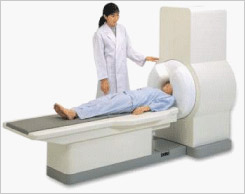Expention Program: The fomation of a joint-international R&D Hub(Under the leadership of Hokuriku)
| Project Leader | Isao HASHIMOTO Visiting professor, Kanazawa Institute of Technology |
||||||
|
|||||||
We conduct joint international studies in order to ensure international leadership and advantage in terms of MEG hardware and software and to form an international research and development hub. We also conduct basic studies on human brain functions as well as studies on clinical applications, exchange relevant information, and organize international symposia to provide research information to the rest of the world from the Hokuriku Region with the aim of establishing international standards for MEG.
Specifically, we work to resolve the following issues:
(1) The absence of compatibility of data between different MEG machines due to the lack of a standard phantom for MEG evaluation.
(2) Analysis software reliability has not been established.
Because (3) stimulation methods and (4) diagnostic protocols vary among researchers, it is impossible to compare or share data.
Considering that it is necessary to promote the standardization of MEG and associated fields in order to improve the current situation and to develop MEG research, we have established a general assembly. In order to resolve the above-mentioned issues, the following related fields should be standardized:
(1) Hardware (phantom)
(2) Analysis software
(3) Stimulation (paradigm)
(4) Diagnostic protocol
We will establish 4 sub-committees to promote the standardization of each of these 4 fields.
Our ultimate goal is to achieve the authorization of international MEG standards by advocating its importance based on the outcome of joint research carried out by the four sub-committees, proposing authorization to established academic societies (The Japanese Society of Clinical Neurophysiology, The Japan Biomagnetism and Bioelectromagnetics Society, The International Society of Biomagnetism, and The International Society for the Advancement of Clinical Magnetoencephalography), and supporting the establishment of MEG guidelines.
 |
The Hokuriku Industrial Advancement Center